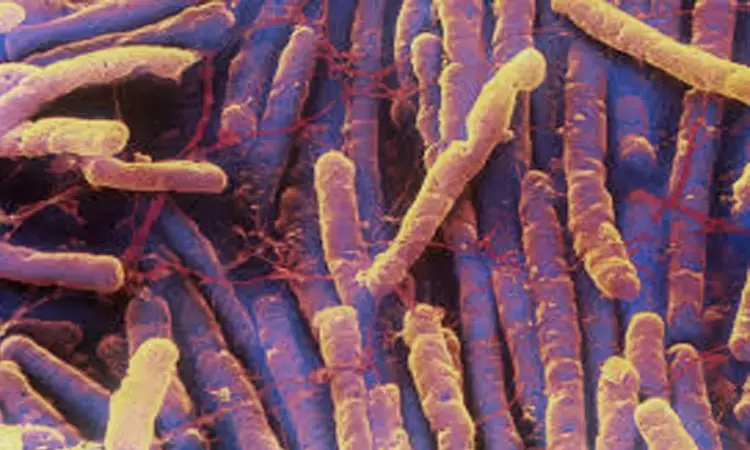- Home
- Medical news & Guidelines
- Anesthesiology
- Cardiology and CTVS
- Critical Care
- Dentistry
- Dermatology
- Diabetes and Endocrinology
- ENT
- Gastroenterology
- Medicine
- Nephrology
- Neurology
- Obstretics-Gynaecology
- Oncology
- Ophthalmology
- Orthopaedics
- Pediatrics-Neonatology
- Psychiatry
- Pulmonology
- Radiology
- Surgery
- Urology
- Laboratory Medicine
- Diet
- Nursing
- Paramedical
- Physiotherapy
- Health news
- Fact Check
- Bone Health Fact Check
- Brain Health Fact Check
- Cancer Related Fact Check
- Child Care Fact Check
- Dental and oral health fact check
- Diabetes and metabolic health fact check
- Diet and Nutrition Fact Check
- Eye and ENT Care Fact Check
- Fitness fact check
- Gut health fact check
- Heart health fact check
- Kidney health fact check
- Medical education fact check
- Men's health fact check
- Respiratory fact check
- Skin and hair care fact check
- Vaccine and Immunization fact check
- Women's health fact check
- AYUSH
- State News
- Andaman and Nicobar Islands
- Andhra Pradesh
- Arunachal Pradesh
- Assam
- Bihar
- Chandigarh
- Chattisgarh
- Dadra and Nagar Haveli
- Daman and Diu
- Delhi
- Goa
- Gujarat
- Haryana
- Himachal Pradesh
- Jammu & Kashmir
- Jharkhand
- Karnataka
- Kerala
- Ladakh
- Lakshadweep
- Madhya Pradesh
- Maharashtra
- Manipur
- Meghalaya
- Mizoram
- Nagaland
- Odisha
- Puducherry
- Punjab
- Rajasthan
- Sikkim
- Tamil Nadu
- Telangana
- Tripura
- Uttar Pradesh
- Uttrakhand
- West Bengal
- Medical Education
- Industry
Fecal microbiota transplants improve diarrhoea in majority patients with C. diff

The Researchers at the University of Birmingham have found that Faecal Microbiota Transplants (FMT) are highly successful in treating patients with Clostridioides difficile (C.diff) infection. The results of the study have shown that in 78% of cases the patient's diarrhoea had stopped and had not returned in the 90 days after treatment. The study has been published in EClinical Medicine.
Antibiotics can be effective in treating the first episode of C.diff. However, 10-20% of patients don't respond and the infection then recurs. Success rates of antibiotics in relapsing infection can be as low as 30%.
C.diff infections result from the good gut bacteria being killed by antibiotics given for other infections and cause severe diarrhoea, abdominal pain and may be fatal in elderly patients.
During FMT, the good bacteria in the faeces of a healthy donor are transferred to the gut of a patient with the infection.
The Microbiome Treatment Centre at the University of Birmingham is the first in the UK to be licensed for FMT preparation by the Medicines and Healthcare products Regulatory Agency (MHRA), supplying NHS patients across the country.
Before the dedicated centre was set up, many patients across the UK were unable to access this treatment.
Scientific studies have demonstrated that FMT treatment is better than treatment with special expensive antibiotics for C.diff infections, particularly when the patient's infection has come back again.
The development of a licensed FMT service at the University of Birmingham will widen the supply and improve equality of access to FMT treatment across the NHS. It will provide critical support for researchers both here in Birmingham and in other centres working on how FMT produces a cure not only in C.diff infection but also conditions such as ulcerative colitis and other diseases that seem to be linked to the gut microbiome.
Lead author Dr Victoria McCune, Consultant Clinical Scientist in Microbiology at South Tees Hospital NHS Foundation Trust, said:
"Our research has successfully shown the benefits of treating recurrent C.diff patients with FMT. Our standardized approach to making FMT will improve the quality and safety of this treatment for many more patients."
Professor Peter Hawkey, Professor of Clinical and Public Health Bacteriology at the University of Birmingham's Institute of Microbiology and Infection, said:
"This work has turned an unregulated potentially dangerous method of faecal transplantation into a national service providing rapid, safe regulated, life-saving treatment for a serious disease affecting thousands of patients in the UK."
Hina Zahid Joined Medical Dialogue in 2017 with a passion to work as a Reporter. She coordinates with various national and international journals and association and covers all the stories related to Medical guidelines, Medical Journals, rare medical surgeries as well as all the updates in the medical field. Email: editorial@medicaldialogues.in. Contact no. 011-43720751
Dr Kamal Kant Kohli-MBBS, DTCD- a chest specialist with more than 30 years of practice and a flair for writing clinical articles, Dr Kamal Kant Kohli joined Medical Dialogues as a Chief Editor of Medical News. Besides writing articles, as an editor, he proofreads and verifies all the medical content published on Medical Dialogues including those coming from journals, studies,medical conferences,guidelines etc. Email: drkohli@medicaldialogues.in. Contact no. 011-43720751


